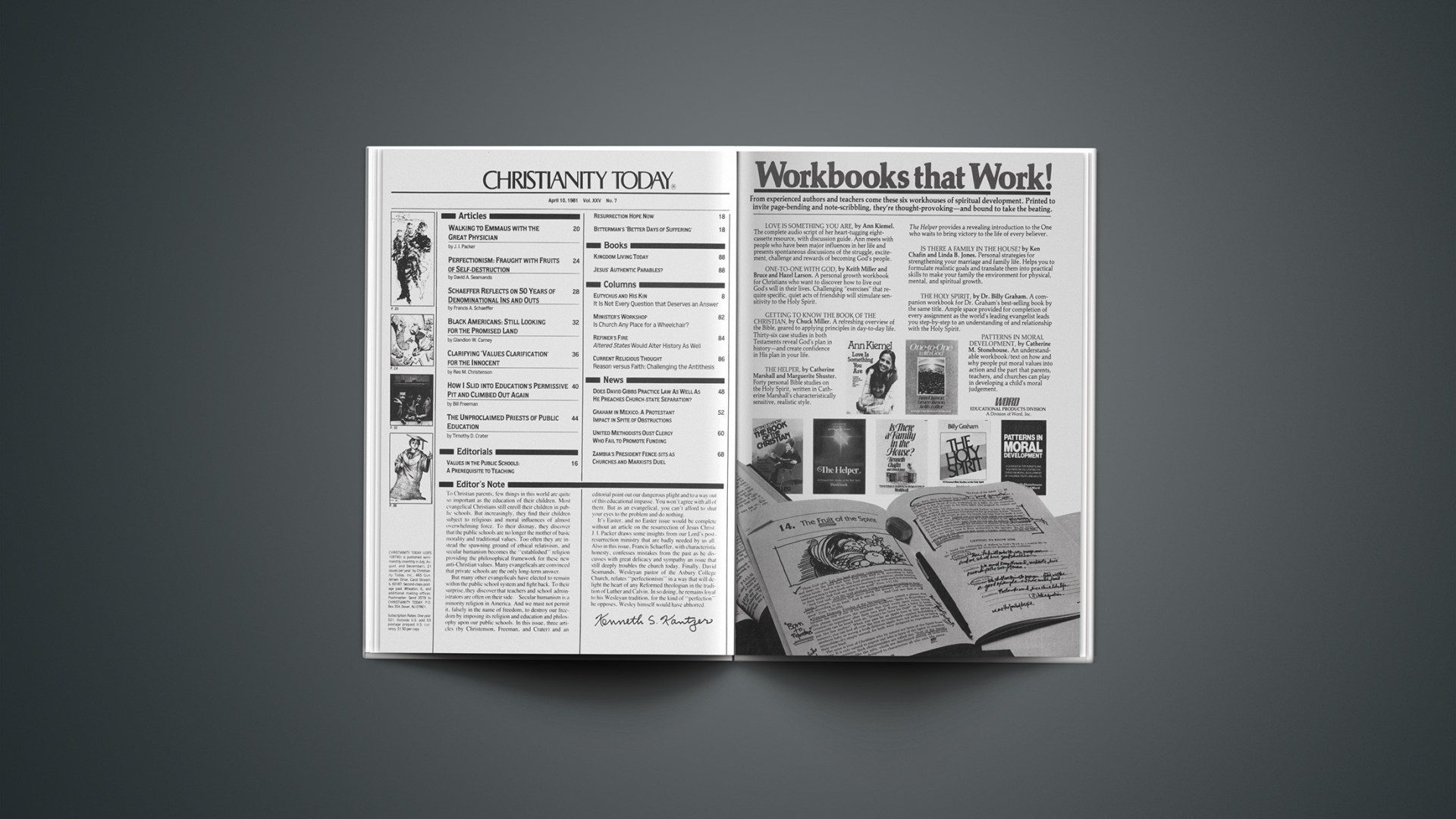To Christian parents, few things in this world are quite so important as the education of their children. Most evangelical Christians still enroll their children in public schools. But increasingly, they find their children subject to religious and moral influences of almost overwhelming force. To their dismay, they discover that the public schools are no longer the mother of basic morality and traditional values. Too often they are instead the spawning ground of ethical relativism, and secular humanism becomes the “established” religion providing the philosophical framework for these new anti-Christian values. Many evangelicals are convinced that private schools are the only long-term answer.
But many other evangelicals have elected to remain within the public school system and fight back. To their surprise, they discover that teachers and school administrators are often on their side. Secular humanism is a minority religion in America. And we must not permit it, falsely in the name of freedom, to destroy our freedom by imposing its religion and education and philosophy upon our public schools. In this issue, three articles (by Christenson. Freeman, and Crater) and an editorial point out our dangerous plight and to a way out of this educational impasse. You won’t agree with all of them. But as an evangelical, you can’t afford to shut your eyes to the problem and do nothing.
It’ Easter, and no Easter issue would be complete without an article on the resurrection of Jesus Christ. J. I. Packer draws some insights from our Lord’s post-resurrection ministry that are badly needed by us all. Also in this issue. Francis Schaeffer, with characteristic honesty, confesses mistakes from the past as he discusses with great delicacy and sympathy an issue that still deeply troubles the church today. Finally. David Seamands. Wesleyan pastor of the Asbury College Church, refutes “perfectionism” in a way that will delight the heart of any Reformed theologian in the tradition of Luther and Calvin. In so doing, he remains loyal to his Wesleyan tradition, for the kind of “perfection” he opposes. Wesley himself would have abhorred.










